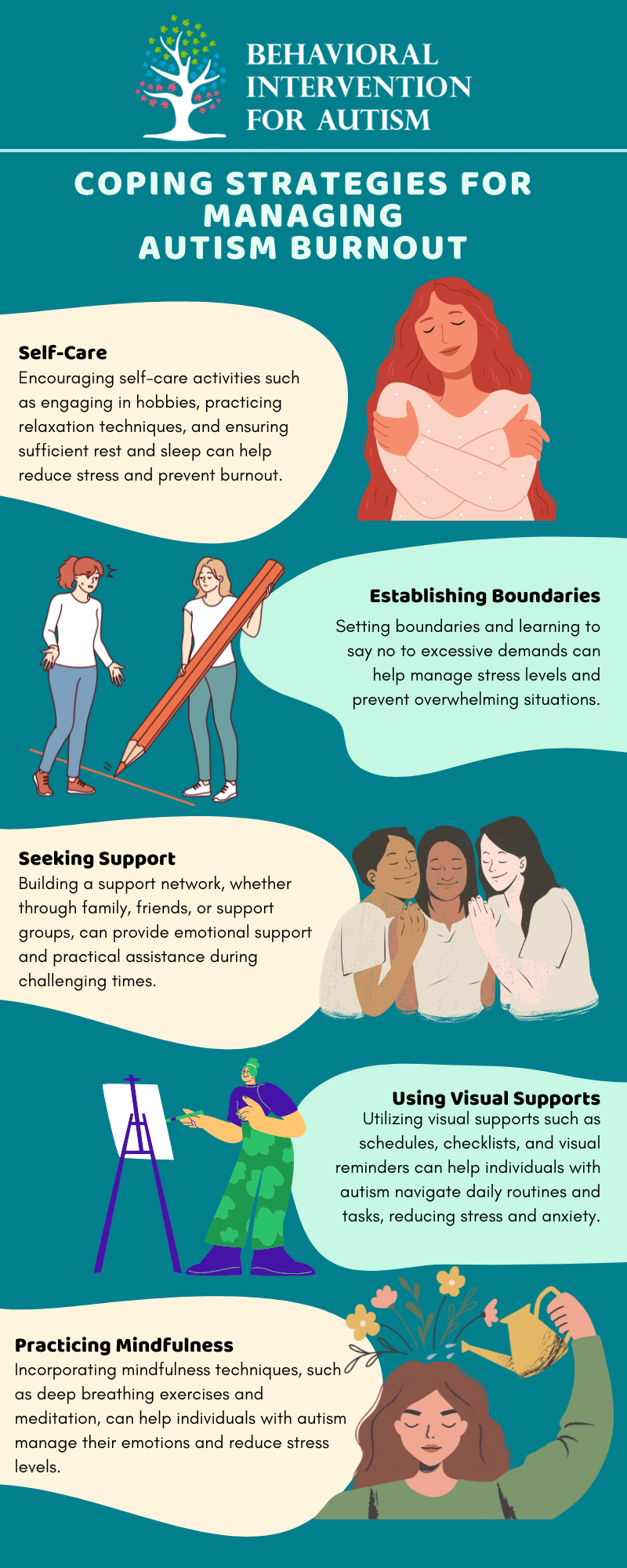
Table of Contents
Burnout is a phenomenon that a lot of autistic individuals may experience. Autism burnout goes beyond regular exhaustion and can have a significant impact on an individual’s overall well-being.
Fortunately, there are ways to avoid it, and that’s what we’re going to cover in this article.
What is Autism Burnout?
Before we begin, let’s first have a brief overview of autism burnout.
Autism burnout refers to a state of physical, mental, and emotional exhaustion that individuals with autism may experience. It can be characterized by a loss of skills, heightened anxiety, irritability, and a decrease in overall functioning. It can render a person incapable of accomplishing tasks within their capabilities, leading to feelings of frustration and hopelessness.
The impact of autism burnout can be far-reaching. It can affect various aspects of an individual’s life, including their ability to engage in daily activities, communicate effectively, and maintain relationships.
The loss of skills and increased difficulties can lead to social withdrawal, decreased self-care, and a decline in overall quality of life.
Signs and Symptoms
Recognizing the signs and symptoms of autism burnout is crucial for early intervention and support. While the specific manifestation may vary from person to person, there are common signs and symptoms to be aware of. These can include:
- Increase in irritability and frustration
- Lethargy and lack of energy
- Withdrawal from social interactions
- Unresponsiveness to stimuli or people
- Loss of self-care skills
- Decreased speech or communication abilities
- Difficulties with decision-making and problem-solving
- Heightened anxiety and stress levels
It’s important to note that not all individuals on the autism spectrum will experience burnout, and the severity of symptoms can vary. However, being aware of these signs can help caregivers and individuals themselves identify when additional support and strategies may be needed.
Managing Autism Burnout
Now that we know what autism burnout is, let’s talk about how parents and caregivers can manage it.
Needless to say, proper autism burnout management is essential to prevent physical and emotional exhaustion in individuals with autism. Luckily, it is possible to mitigate the effects of burnout and promote recovery through the help of these strategies:
Recognize the Triggers
Recognizing the triggers that contribute to autism burnout is the first step in effectively managing it.
Triggers can vary from person to person, but common ones include overcommitment, anxiety, change in routine, lack of sleep, and sensory overload. Identifying these triggers allows individuals and their caregivers to take proactive measures to minimize their impact.
Maintaining a journal or list of triggers and noting specific situations or events that lead to burnout can be helpful in this case. It allows for a better understanding of patterns and helps in developing strategies to prevent or manage burnout in the future.
Implement Coping Strategies
Once triggers have been identified, implementing coping strategies is crucial in managing autism burnout. Coping strategies can vary depending on individual preferences and needs.
Some effective strategies include the following:
Adapt Lifestyle Changes for Recovery
Making necessary lifestyle changes is essential for recovery from autism burnout. This may involve adapting routines, reducing commitments, and creating a nurturing environment that promotes well-being.
Here are some lifestyle changes that can aid in recovery:
- Balanced Schedule – Striving for a balanced schedule that includes adequate time for rest, relaxation, and engaging in enjoyable activities can help prevent burnout.
- Prioritize Mental Health – Paying attention to mental health needs by seeking therapy, counseling, or other forms of professional support can contribute to overall well-being.
- Create a Supportive Environment – Establishing a supportive and understanding environment at home, school, or work can help reduce stressors and foster a positive atmosphere.
- Advocate for Accommodations – Identifying and advocating for necessary accommodations, such as sensory-friendly environments or modified work schedules, can help individuals with autism manage their energy levels and prevent burnout.
By actively managing burnout through trigger recognition, coping strategies, and lifestyle changes, individuals with autism can better navigate their daily lives and minimize the impact of burnout on their overall well-being.
Long-Term Impact of Autistic Burnout
When individuals experience autistic burnout, it can have long-term effects on their psychological well-being and require significant lifestyle adjustments to promote recovery and overall well-being.
Autistic burnout can have a profound impact on an individual’s psychological state. The prolonged stress and exhaustion associated with burnout can lead to various psychological effects, such as:
- Increased irritability and mood swings.
- Feelings of overwhelming fatigue and exhaustion.
- Difficulty concentrating and making decisions.
- Heightened anxiety levels.
- Decreased motivation and interest in activities.
- Social withdrawal and isolation.
- Loss of self-esteem and self-confidence.
- Development of depressive symptoms.
It’s important to recognize these psychological effects and seek appropriate support and intervention. Engaging with mental health professionals, therapists, and support groups can be beneficial in managing and addressing these challenges.
Understanding and addressing the long-term impact of autistic burnout is crucial for promoting the overall mental health and quality of life for individuals with autism. Proper support, intervention, and lifestyle adjustments will help affected individuals work toward a healthier and more fulfilling life.
Sources:
https://neurodivergentinsights.com/blog/how-to-avoid-autistic-burnout
https://the-art-of-autism.com/7-ways-to-prevent-autistic-burnout
https://psychcentral.com/autism/autistic-burnout
https://www.autismparentingmagazine.com/burnout-autism-prevention-causes
- 9 Common Obsessions of Children With Autism You Should Know - February 25, 2025
- What is Neurodiversity? A Guide to Embracing Differences - February 25, 2025
- Understanding Hyperfocus in Autism: What It Means and Why It Happens - February 25, 2025




